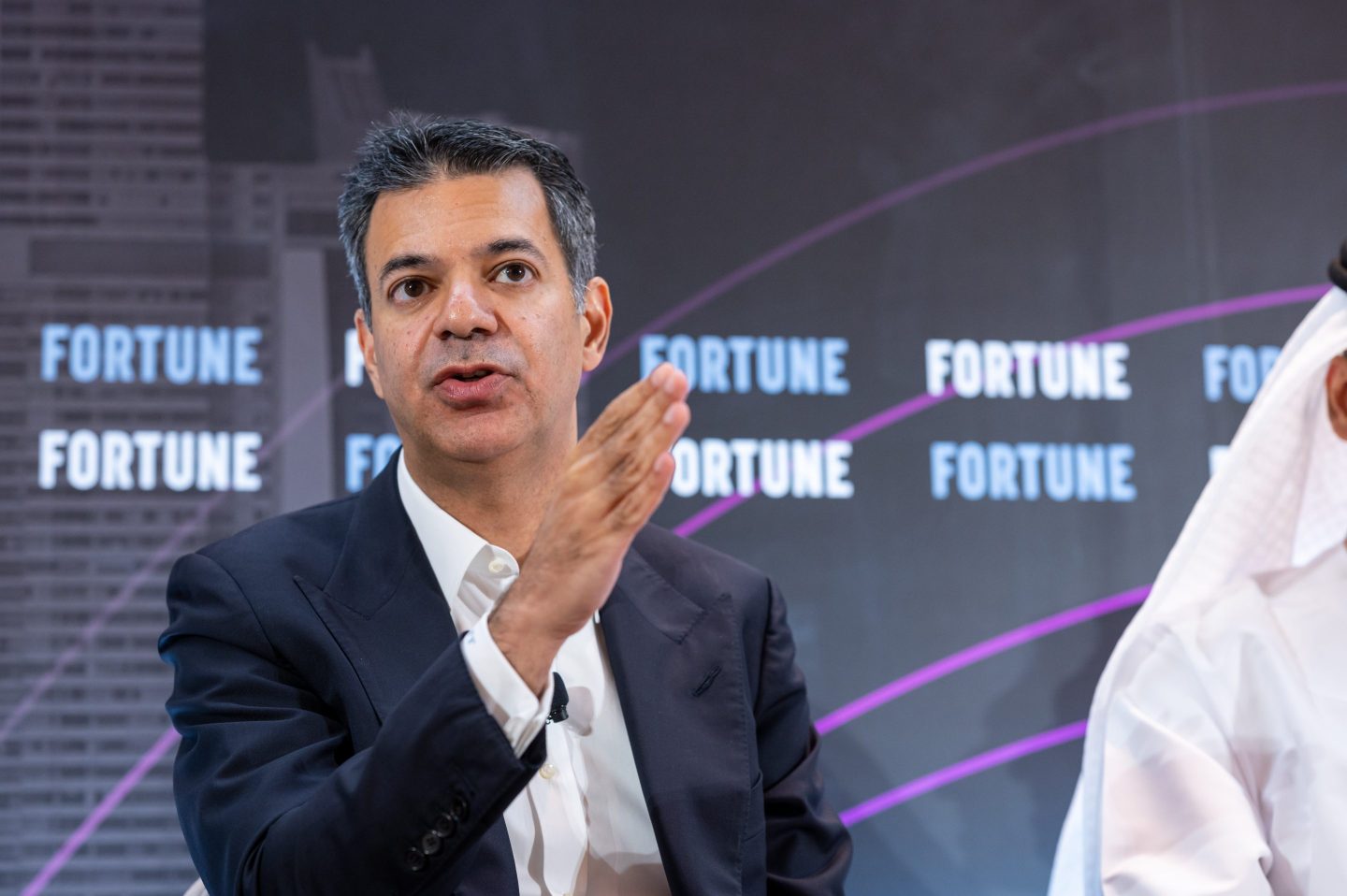Heavy industry is not your typical business—it requires a level of delicate forward planning which many companies can survive without.
Executives must weigh every investment in a new factory or production line carefully, as these long-term assets are likely to be written down over the course of a decade or longer.
Which is why bosses can’t wait on politicians to reach a consensus on climate change policy: Businesses are having to lead with their own green initiatives and hope it lines up with government’s.
That makes planning a bit of a moving target. Organizations are having to align with what they predict policymakers might do in five, 10, or even 20 years and take steps now to prepare themselves for a circular economy.
It’s little wonder then that executives at the Fortune Global Forum in Abu Dhabi argue sustainability is no longer considered a tradeoff to the detriment of growth and profits, but a necessity for long-term survival.
“They go hand in hand together,” said Moosa Al-Moosa, president at chemicals group Dow, where he is responsible for the Middle East and Turkey. “Our strategy is decarbonize and grow.”
A prime example of where the industry is headed is Dow’s first ever net-zero “cracker” in Alberta, Canada, where CO2 emissions now have a price. These facilities crack open long chains of hydrocarbon molecules in order to produce materials from plastics to synthetic fibers.
Typically they are among the most investment-heavy expenditures in the chemicals industry. Running them requires extreme amounts of energy, and they emit a considerable amount of CO2 into the atmosphere. Constructing one that is carbon-neutral would in many ways represent a breakthrough for the sector.
“If you want to build up your industrial landscape, you need to make sure it is also competitive, and sustainability is a critical aspect,” said Helmut von Struve, who runs the Middle East operations of Siemens.
This kind of foresight will eventually pay off for companies like Siemens, which counts the European Union and its 450 million citizens as its home. The EU has already passed legislation mandating the transformation to a carbon-neutral economy by 2050.
Republicans still debating climate change
While European businesses are taking action, policy pledges in the run-up to the U.S. presidential elections vary wildly.
President Biden, for example, has set a target for a net-zero emissions economy by no later than 2050. Republican candidate Vivek Ramaswamy, however, has said his policy would be to “drill, frack, [and] burn coal” if elected president, since the “climate change agenda is a hoax.”
To get ahead of varying political agendas on decarbonization and with COP28 around the corner, companies are taking steps to cut down on their own manufacturing footprint and supply chain now.
Walid Sheta, president for Middle East and Africa at Schneider Electric, said his company is analyzing the whole supply chain every day to ensure it is more circular and sustainable.
Nowadays he is confident his business can help achieve the Paris climate targets, something he wouldn’t have believed only five years ago.
“Honestly the way we see our company evolving; the way we see the technology being available; the way we see the pressure that is coming to implement, to make our factories net zero; the way we see our customers behaving—in aiming to reach and measure the net-zero impact path—makes us optimistic,” Sheta said. “For us there is absolutely no tradeoff.”













